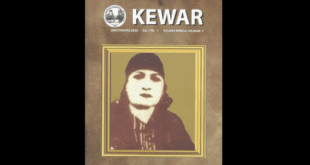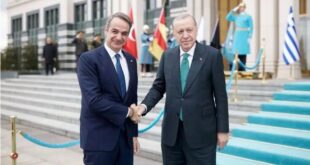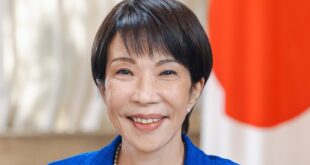We have to increase the usage of languages and not only the knowledge and that is not only in the will of the people. We must establish spaces for language use, spaces to consume in our languages where all activities can be carried out normally in our languages.
Agurne Gaubeka Erauskin is a language activist working in the fields of linguistic rights. She has been director of The Observatory of Language Rights -Behatokia since 2019. She participated in Kurdish Language Symposium which was held in Wan, Northern Kurdistan between 18th and 19th May. Infowelat has done an interview with her in order to bring the experience about the Basque recovery to the attention of Kurdish people.
The Basque Country is a divided country between Spain and France and it is also extra divided between two autonomous communities in Spain. How this political situation has impact on status of Euskara in each region?
The recognition of Euskara by each state and each administration should be the basis for guaranteeing the linguistic rights, but Euskara is not yet official in some parts of the territory. In the territory that is under the French State, there is no legal effective recognition of any language other than French. In the territory under the Spanish State, the recognition is only partial. Our language is only official in the Basque Autonomous Community and in the north of Navarre Foral Community but Euskara doesn’t have the same legal conditions as the Spanish language. The only language that is compulsory to know is Spanish language, not Euskara and this is a legal and social obstacle towards the equality of languages and their speakers.
Besides the official challenges are there any other obstacles like not having enough people in this field to promote your language and do you have enough people who are taking care of the technical issues when this language is faced when it comes to technology?
Obviously, it’s a problem to have a percentage of citizens who don’t have knowledge of Euskara. New technologies can be a great help in facilitating communication or learning, for example, in “Euskalgintzaren Kontseilua” (The Council of Basque Language Organizations) there’re some entities that have made great progress in integrating our language into new technologies or science. Even so, it is insufficient, since we need the entire society to have knowledge of Basque so that the linguistic rights of Basque-speaking people are correctly and equally guaranteed.
Does the state support for survival of your language or do you only have support from civil society?
For the survival of Euskara we need the administrations to implement the measures and be the guarantors that they are fulfilled, but to promote these changes in the administrations or in the decision-making bodies, social mobilization and organization is essential. Furthermore, entities like ours (The Linguistic Rights Observatory of Basque Country or the Council of the Basque Language Organizations) are another guarantee to ensure that the rights of citizens are guaranteed. We must work together with administrations and social entities to reach a language governance. For all these, we need great capacity for organization and coordination among all those who work or want the normalization of our language.
Euskara has the status of an official language in Basque Autonomous Community but as you say the only language that is compulsory to know is Spanish. Why Basque government do not make Euskara mandatory in education?
We have a problem with Spanish constitution, but I think that the Basque Autonomous Community lost an opportunity to make our language mandatory for all of inhabitants. If we have the knowledge, we can guarantee the linguistic rights more easily. But is only the first step and this first step is related with the educational system. Educating people and promoting equality of all cultures and all peoples, in addition to establishing a restorative model that repairs all the injustices and oppressions suffered in our country are necessary.
As you highlighted during your presentation, you have had significant achievements to increase the knowledge of Euskara but this is not the case when it comes to real language use. What do you lack to have an success story in the field of language normalization?
We need more than the status for all the territory, we need more measures to guarantee the use of the Basque in all of our territory. We need for example a good planification, more awareness and a good legal protection to a veritable normalization. We want to live in our languages on all areas of our life: study in Euskara, work in Euskara, have leisure in Euskara and for example use new technologies or have the digital system available in our language.
What could be certain common measures to promote Kurdish, Euskara and other languages less commonly spoken and less commonly taught?
I think your strong capacity of mobilization and work in the field of language is the key factor. By doing these, you can organize people to demand more legal protection from the state and also use the international legal instruments of linguistic rights to increase pressure against the state.
On the other hand, I believe that we must integrate linguistic rights into the demands of all social and political movements, since it is the language that unites us as a country. By leaving linguistic policy in the area of language or culture we are leaving it in the background.
What is your call to the international organizations and people speaking minoritized languages?
We have to increase the usage of languages and not only the knowledge and that is not only in the will of the people. We must establish spaces of use, spaces to consume in our language where all activities can be carried out normally in our languages. Furthermore, we must provide young people with all types of active offers in our languages if we want to guarantee a future for them. We believe that linguistic rights are being taken to market rules, to the supply and power of the strongest (the hegemonic languages) and we have to change this lack of balance.
——————————————-
Photo: Agurne Gaubeka/Photo used with permission
Infowelat
 Infowelat Enformasyon Ji Bo Welat
Infowelat Enformasyon Ji Bo Welat




